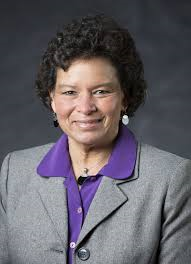My first exposure to gerontology as an academic discipline was about ten years ago when I was working in a small liberal arts college. The school specialized in applying traditional liberal arts education to the contemporary professional work world, and it offered majors like English, history, theology, psychology and business. There were no science or clinical health programs, but the most popular minor was gerontology. How did THAT happen?
Next door to that small liberal arts college was a continuing care retirement community, and residents had full access to the college and its services. The seniors hung out in the college library, attended sporting events, participated in student activities and audited classes. It was fascinating to observe how students reacted to and interacted with the seniors. Students curbed their language, tidied their clothing and stood up straighter in the company of their older neighbors. In the student environment, the seniors’ eyes brightened, their steps quickened, and they engaged their younger neighbors in rich, meaningful conversation.
The long-term result of this day to day interaction was the establishment of a genuine intergenerational learning community. Regular and healthy exposure to seniors sparked an appreciation for the importance of the social, spiritual, and psychological aspects of aging. Regular exposure to the reality of healthy aging led students to explore service opportunities and internships within the continuing care retirement community, especially in the memory unit and the long-term care facility. Through a combination of experiential learning and gerontological coursework, an increasing number of students completed gerontology minors. Many went on to work as senior services navigators or senior advocates. Others continued to volunteer in the continuing care facility years after graduation.
It is my desire that FranU students may be similarly blessed with multiple opportunities to interact with seniors in healthy, mutually beneficial ways, such that they may be inspired to support healthy aging through their professional or volunteer work. If students understand that “old and aging” do not equal “sick and sicker”, they will be much more motivated to pursue gerontology as a discipline and/or profession.
So, let’s emphasize healthy aging and encourage healthy relationships with seniors. We will all be certain to enjoy the benefits.

Dr. Tina S. Holland
President
Franciscan Missionaries of Our Lady University
Dr. Tina Holland has been the president of Franciscan Missionaries of Our Lady University (previously Our Lady of the Lake College) since 2014. Prior to coming to Louisiana, Dr. Holland was the Executive Vice President and Provost at Holy Cross College in Notre Dame, Indiana for 24 years. Dr. Holland is a graduate of the U.S. Naval Academy and served three years in the United States Marine Corps.
